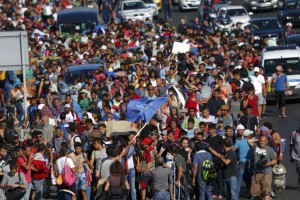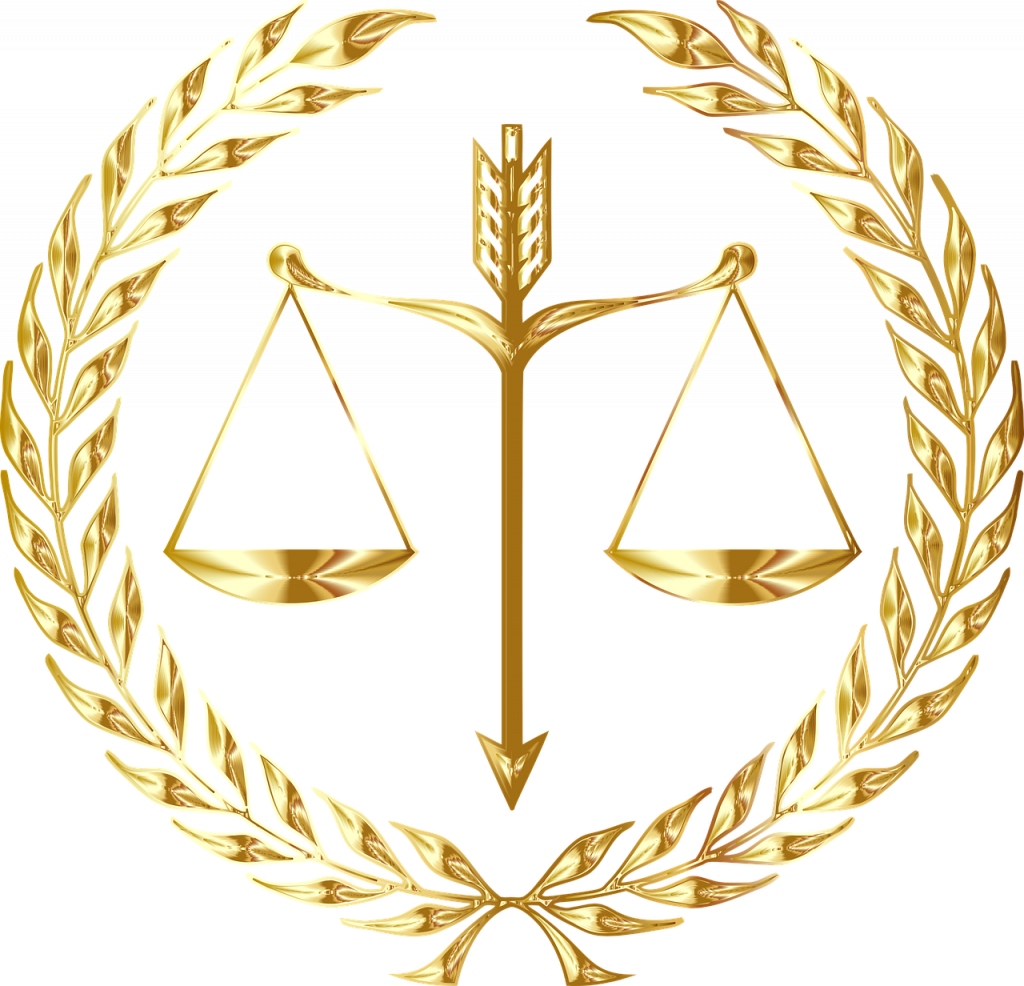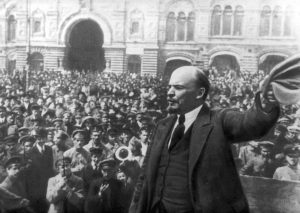As he alighted from a boat recently on the island of Kos in Greece, an out of breath Syrian refugee was met by a journalist’s microphone and said simply – ‘I want to be a person. Here I can be a person’. Yet another man nearby said in broken English ‘I want [to] be a human. In Syria, now [it] is not possible to be human’. These refugees probably did not realise what a momentous statement they had made in having their first words in Europe include ‘person’ and ‘human’. For while most consideration is on immediate practical assistance, there is a lurking sub-text in this flow of refugees to Europe. And it is this – it is precisely in its attitude to the human person that Europe distinguishes itself from many other civilisations, though of course many in western wars forgot this principle. The extraordinary rich philosophical, theological and historical European legacy reveals itself in societies, where, even if haunted by world wars, even if western societies are post-Christian and secular liberal, the notion of the equal dignity of the each human person still remains, exhorting care for those who need it, irrespective of race or religion. Polish president Donald Tusk articulated this recently, saying of the new waves of refugees:
I want to underline that for me, Christianity in public and social life carries a duty to our brothers in need. Referring to Christianity in a public debate on migration must mean in the first place the readiness to show solidarity and sacrifice. For a Christian it shouldn’t matter what race, religion and nationality the person in need represents.1
Underlying all this is the fact that in the west social security is paid to widows, the unemployed, the poor, the homeless, ill and refugees. In addition, respect for human persons takes the form of not being killed if you change your religion or have no religion – a state of affairs which does not exist in, for instance, parts of the Islamic world. Even if Europe lives on in the sunset of western civilisation, it is some essence of that civilisation that the refugees seek, though it may be a long time before they can articulate it in any way, if they ever will.
When a Cardinal, Joseph Ratzinger stated that the notion of ‘person’ is actually a theological one:
The concept of person, as well as the idea that stands behind this concept, is a product of Christian theology. In other words it grew in the first place out of the interplay between human thought and the date of Christian faith and so entered intellectual history.2
Whether the alighting refugees will ever hear this or not, whether those helping the refugees can state it or not, the concept of ‘person’ in early Christian thought evolved from a developing understanding of the Christian doctrine of the Trinity and the Incarnation, from the understanding that each human person reflects the Imago Dei, that is having the reflection of God within him/herself, which results in the extraordinary dignity accorded each person, no matter who he or she may be. It is the heart of the social order in the west, and taken for granted by those who insist on rights of one kind or another. It has been the motivation behind Christian charitable organisations which have provided the greatest number of welfare groups, hospitals, schools, hospices, respite centres, soup kitchens, homeless centres throughout history. Behind charitable social action and desire for justice is the theological understanding that a person is a union of soul and body, loved by God. Those who follow his Son, the God-man Jesus, are to love other persons as He loved them, as He bound them to it. Even in atheist, post-modern, de Christianised Europe, the light of treating persons with the dignity of the children of God has not been exterminated – it lingers in socialist, semi-Marxist, liberal secular ideas. For not treating human persons with dignity is so abhorrent, it is a source of never-ending western protests of one kind or another. For being declared less than a person was what the Jews suffered, the Poles, the gypsies and other minorities in Nazi Germany. The Soviets declared you a non person if you dared oppose their class worldview and killed you. But of course, in our era, the unborn are labelled with that deadly definition of being a non person in the west, to the point that this very definition has reduced populations to less than zero growth – and killed many millions. But the proponents of abortion skilfully argue the unborn child is not a person for, if the unborn child were accepted as a person, to kill him/her would be unthinkable – for to deprive a person or his personhood is a heinous crime. The very reason the term ‘non person’ has such a deadly force, perhaps the deadliest term of the past century, because the term ‘person’ carries with it an extraordinary dignity and rights.
It is possible that the alighting refugees sense this in some deep, inchoate way and unbeknownst to themselves, have opted for the theology of Europe while saying they are Muslims – or perhaps this is pressing a point. One could ask – if they do somehow accept the definition of ‘person’ in the west, have they really remained Muslims for there is a distinct inequality of persons when a non-Muslim stands alongside a Muslim. There is no similar definition of personhood in the Islamic worldview. They may say there is, but in reality, they is not, as perusal of Islamic writings will show – but that is a question for another day – that is, how many ersatz Muslims are there in Europe?
According to the UNHCR, as of July 2015, 4.1 million refugees have left Syria’s war zones, ‘making the Syrian conflict the UN refugee agency’s worst crisis for almost a quarter of a century.’3 Most Syrian refugees live in Jordan, Turkey and Lebanon. Along with other groups of refugees coming from Afghanistan, Iraq and Africa, they are searching for peace – apart from their Islamic dominated societies – the educated and uneducated among them. Doubtless each has an explanation for the conflict but in the end all genuine refugees are reduced to poverty. One surgeon who owned three houses in Syria had been reduced to living in a tent with his fellow countrymen, as his houses had been bombed and he had no future hope of living and working in his own country. He also, doubtless, wants to be ‘a person’, as western civilisation understands it and sees Europe as the place to be one. One can ask why the rich Arab Persian Gulf states do not take in refugees from Syria or elsewhere. The reality is that the Gulf does not like granting refugee status to anyone, even fellow Muslims (about which the media is silent). In addition the Gulf countries are not signatories to the international conventions on refugee rights that Western countries and indeed most world countries have signed up to (another fact about which the media is silent).
In the meantime, there are some ironies to ponder in all this. First, while some may think ruefully of the Siege of Vienna of 1683 when Christendom united to keep the ‘Muslim hordes’ out of Europe – in reality the Muslims coming now are not bearing flags of Islamic conquest nor are they preaching Allah all the way – at least not for now. They have, in some qualified sense, opted for Europe and what it represents in terms of social life, whose very system the leaders of Islam despise. The irony is not only that they have done so but that Europeans do not see the victory of their own civilisation’s ideas, the underlying reasons they have done so. It is not only the money – it is something else that draws many of them – as the refugees say – the desire to be persons.
Second, the Germans welcoming the refugees certainly may not understand for now that they welcome persons with certain religious views they may not agree with in the future. For example, the anti gay-marriage views of Islamic refugees may become a political boiling point in German society which has been vociferously pro gay pride. Muslim families would be unlikely to accept ‘gay rights’ being taught in universal German government education. Will liberal German pro gay rights groups accept this?
Third, the Muslim refugees are pouring in large numbers into Germany (which has agreed to take 800,000 of them), are perhaps not aware that it is against German law to deny the Holocaust. What this means for future integration of the refugees in Germany, is hard to tell, but it can be argued that Germany is helping the new refugees in such an obvious manner not only because of its relative wealth, but perhaps because of guilt associated with its treatment of the Jews during World War II. The irony here is that there is quite a deal of hostility to Jews in the Islamic world and doubtless among many of the new refugees. The counter irony is that it is illegal to deny the Holocaust so there will be an interesting meeting or confrontation of mindsets brewing. In the meantime, as they help their fellow human beings, is it too quixotic to hope that Europeans may understand their own civilisational legacy as regards what it means to be ‘a person’ and celebrate its uniqueness and profound value and meaning – and even give witness to it to the people they help?
- Donald Tusk, ‘Remarks by President Donald Tusk before his meeting with Prime Minister of Hungary Viktor Orbán’, 3/9/2015, European Council of the European Union: http://www.consilium.europa.eu/en/press/press-releases/2015/09/03-tusk-meeting-prime-minister-orban/ ↩
- Joseph Ratzinger, “Retrieving the Tradition: Concerning the Notion of Person in Theology,” Communio: International Catholic Review, 17, Fall (1990), 439. ↩
- http://www.unhcr.org/559d648a9.html ↩










Comments